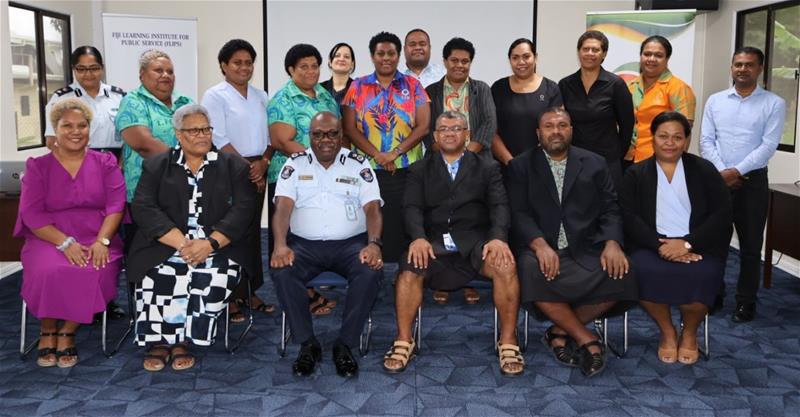SUVA, Fiji (4th July 2025): The appointment of 10 branch managers to oversee the Land Transport Authority’s (LTA) respective branch operations in Sigatoka, Lautoka, Ba, Tavua, Navua/Lami, Suva Express, Garden City, Nausori/Korovou, Savusavu/Taveuni, Labasa, highlights the Authority’s commitment to enhancing leadership, improve service standards, and deliver on its vision for a safer, more efficient transport sector for all Fijians.
While opening the three-day induction training programme for the managers on Wednesday, LTA Chief Executive Officer Irimaia Rokosawa reminded staff of the importance of staying true to the Authority’s core values of customer centricity, results oriented, human centric leadership, and stakeholder relationship management.
“These are not just buzzwords—they guide the way we work, the way we lead, and the way we serve the public. Our customer-centric approach demands that we listen with empathy and act with purpose. It means putting the needs of our communities first, and ensuring that our services are accessible, reliable, and accountable,” Mr Rokosawa said.
“Being results-oriented calls on us as public servants to be proactive, efficient, and committed to continuous improvement. Each of us, in our roles, plays a part in driving performance and achieving meaningful outcomes.
“As a human-centric organisation, we must lead with compassion, foster teamwork, and create safe and supportive workspaces where everyone can thrive. Our newly appointed branch managers will be pivotal in driving positive change at the regional level.”
Mr Rokosawa said the public deserved efficient, respectful, and reliable service from the Authority, and the branch managers would be at the forefront of making that happen with their staff.
He said the appointed managers possessed a wealth of experience, vision, and leadership to steer the operations of their respective branches.
“The role of branch managers is critical—not only in ensuring the smooth delivery of our services, but in helping LTA achieve its strategic goals and strengthen its impact across the communities we serve,” Mr Rokosawa said.
The CEO urged the branch managers to be champions of LTA’s core functions—enforcement, regulation, and customer service—emphasising the need for balance across all three areas.
During the Induction Training at the Fiji Institute of Public Service (FLIPS) in Nasese, Suva, keynote speaker Commissioner of Police Rusiate Tudravu stressed the importance of servant leadership.
As leaders in a service-oriented institution, Mr Tudravu said enhancing internal service delivery as leaders was equally important as it would translate to improved outputs.
“This is one of the greatest challenges in leadership as the shortfalls of those under their command would reflect on them,” he said.
Reflecting on his own experiences, the head of the Fiji Police Force said it was important as leaders to absorb internal and external pressures, learn and readjust, to ensure minimal disruption to service delivery.
LTA’s newly-appointed branch managers include Mr Ponipate Turelau for Sigatoka, Ms Paulini Matadradra for Lautoka, Mr Kaliova Naidumu for Ba, Ms Livia Vacereivalu for Tavua, Ms Emele Mitchell for Navua/Lami, Ms Mereadani Baleitawake for Suva Express, Ms Susana Lelenoa for Nausori/Korovou, Ms Rosa Naiveli for Savusavu/Taveuni, Ms Rejieli Buadromo for Labasa and Ms Ana Tuiono for Garden City Raiwai.
The induction training concluded today.
